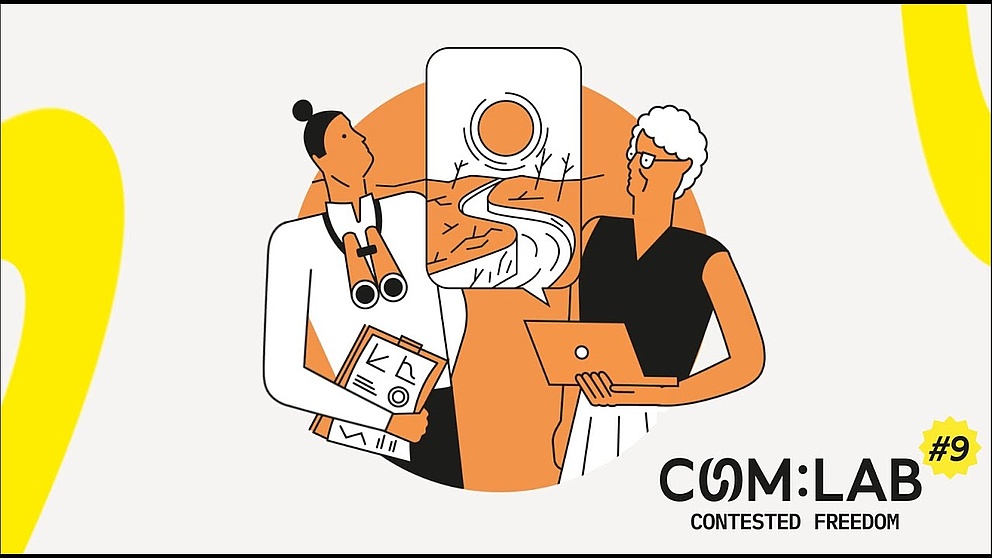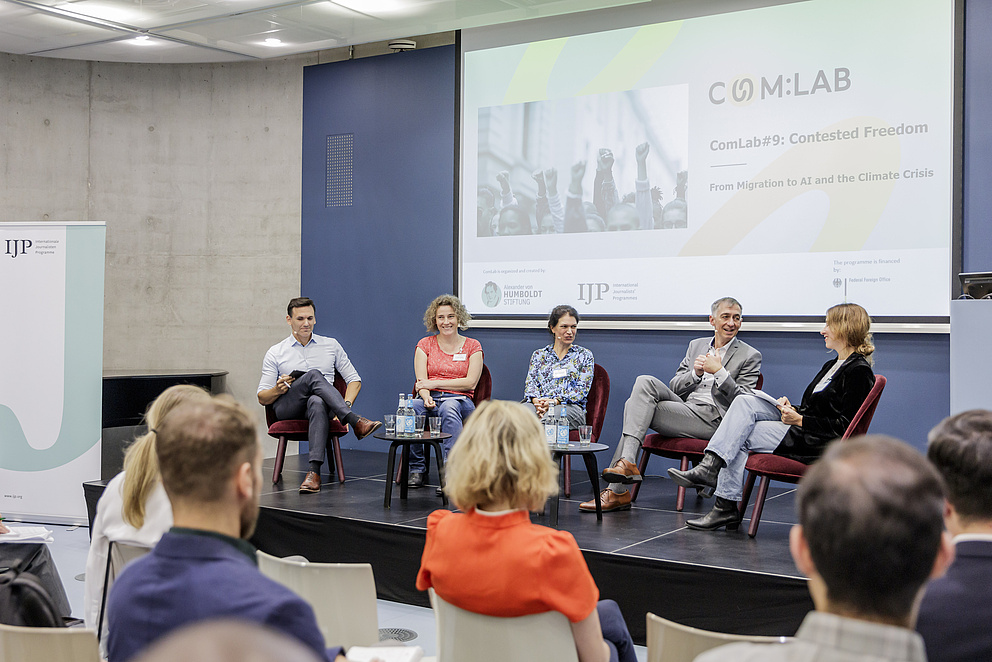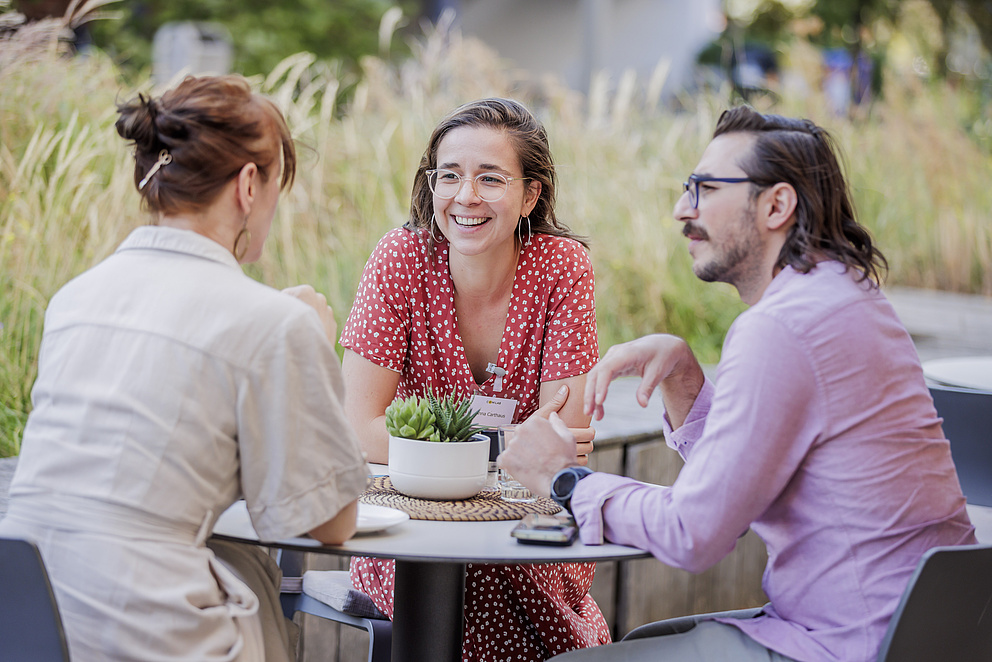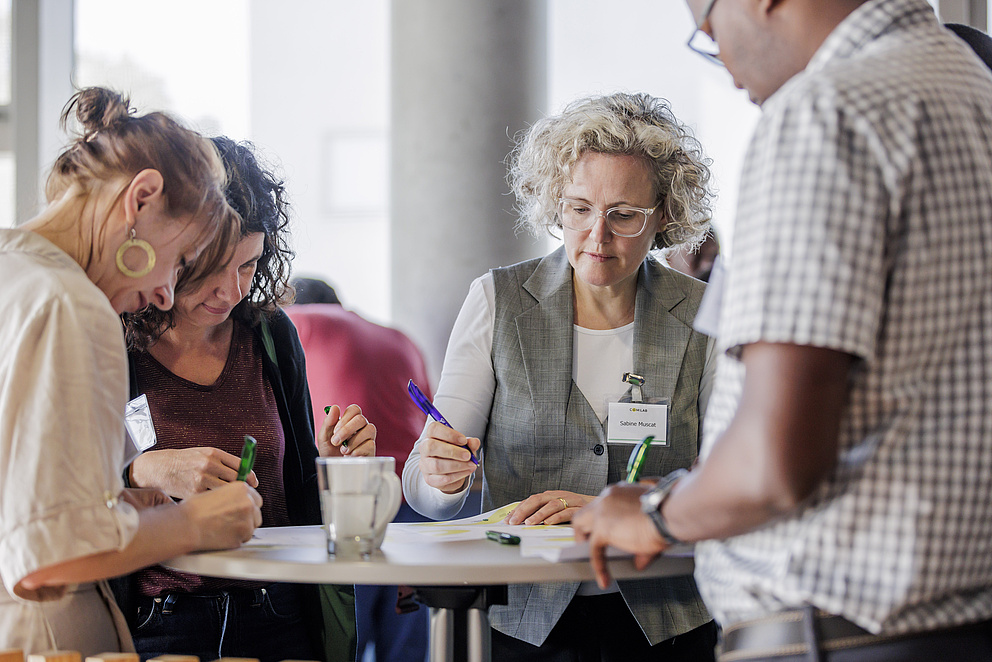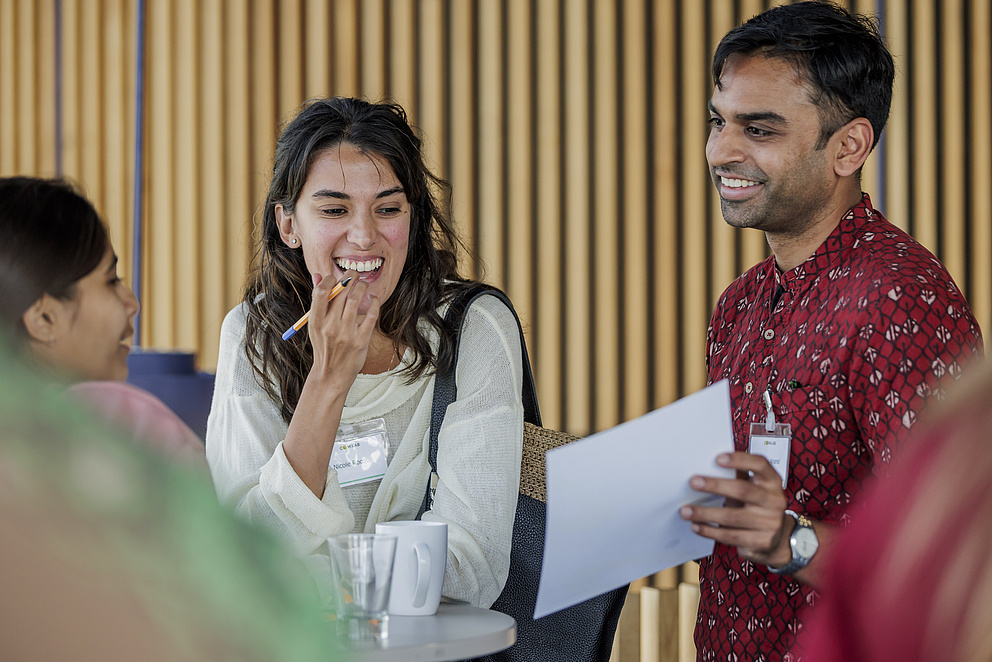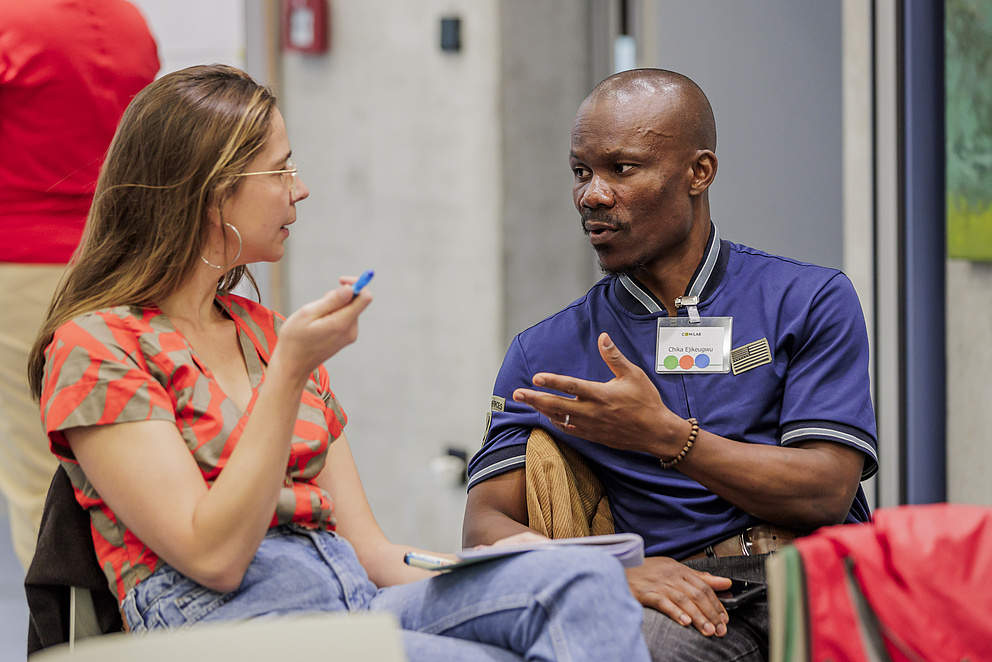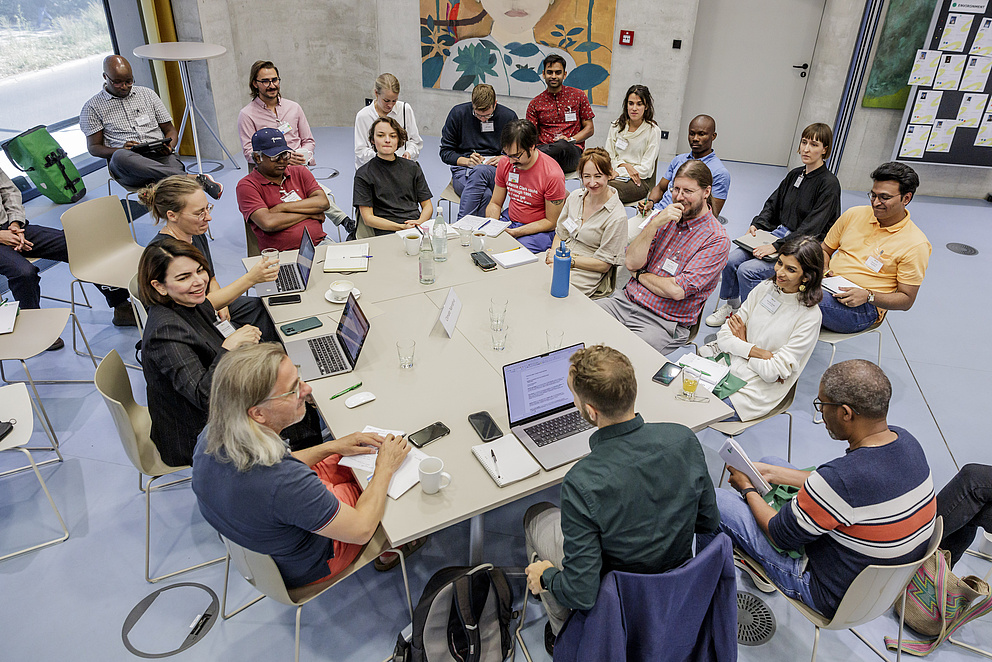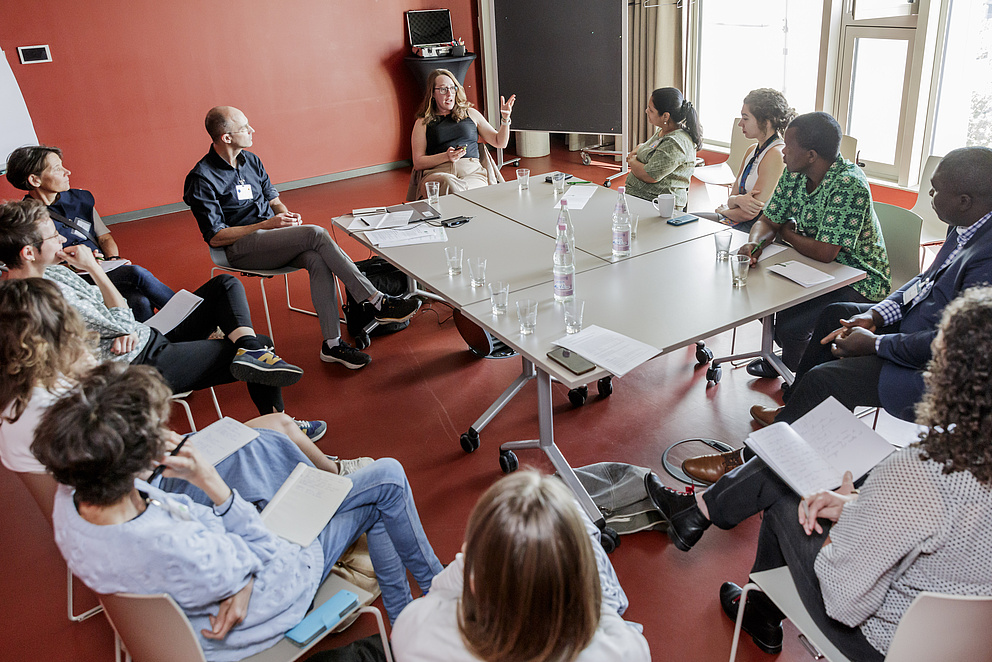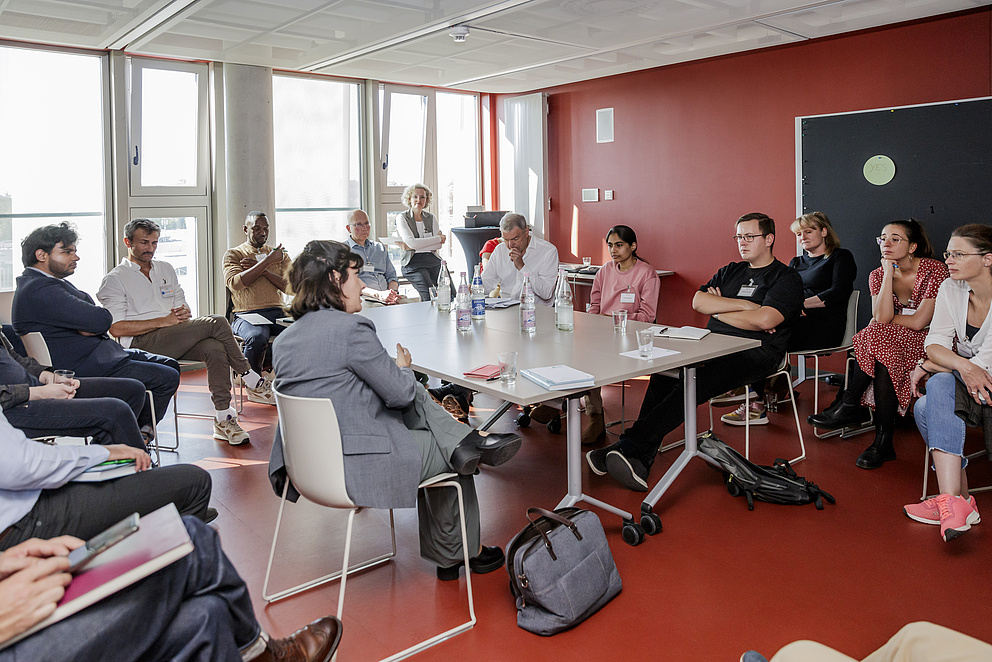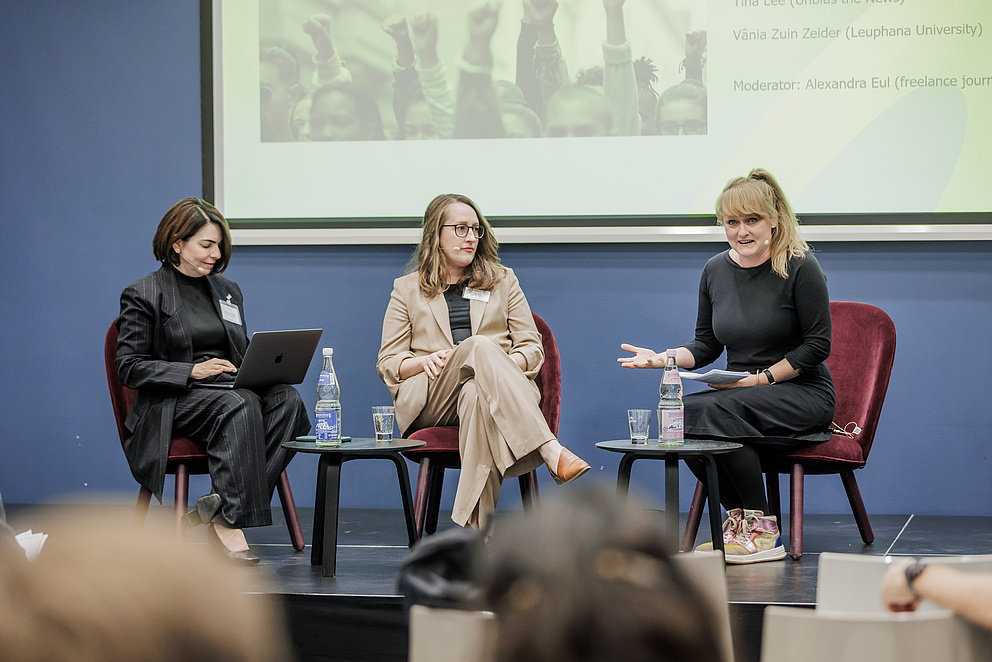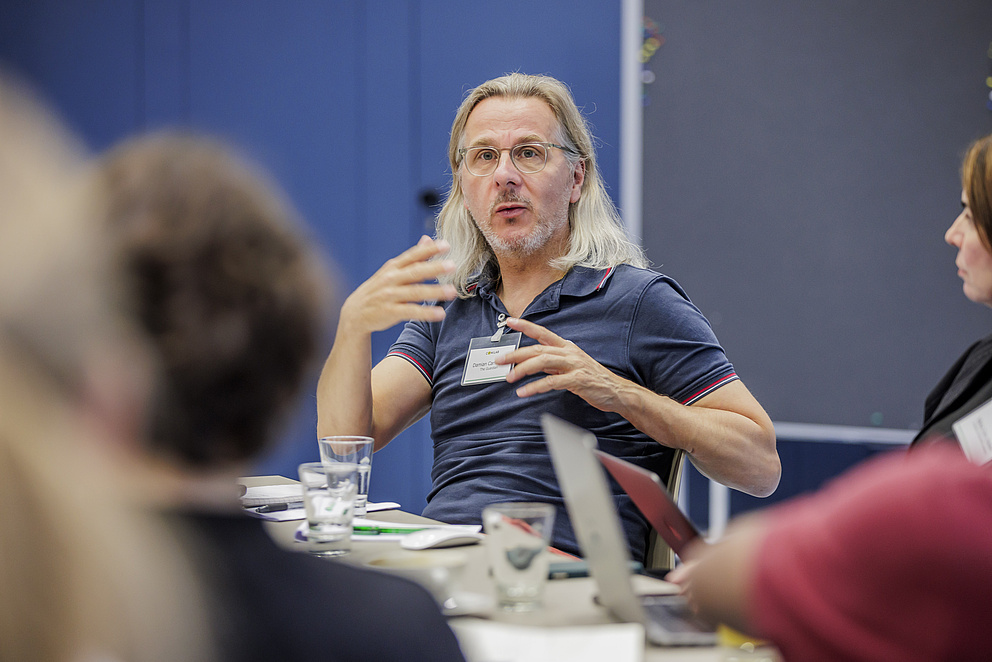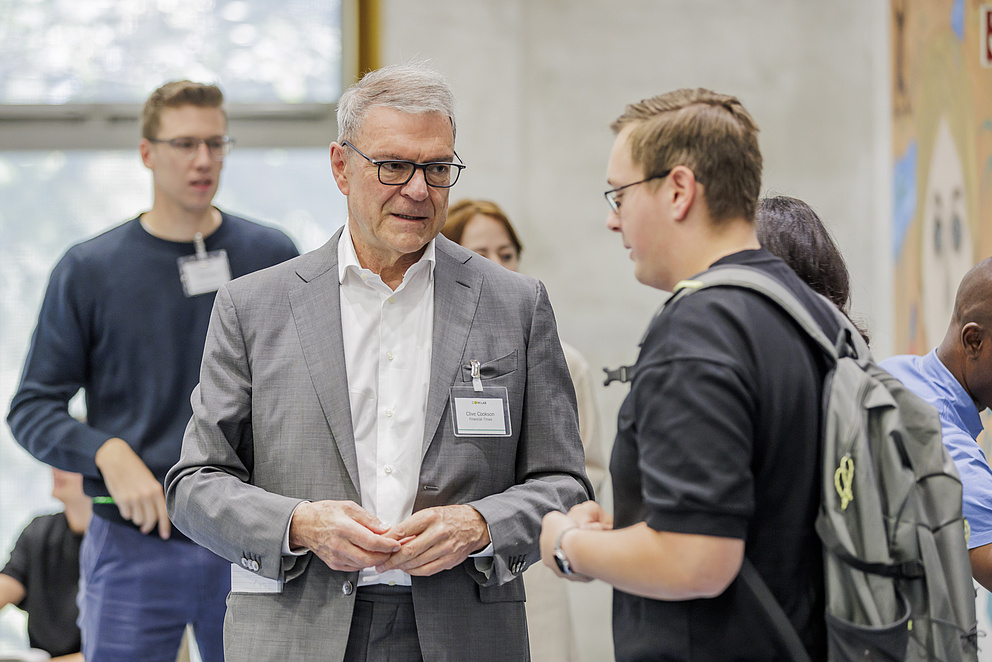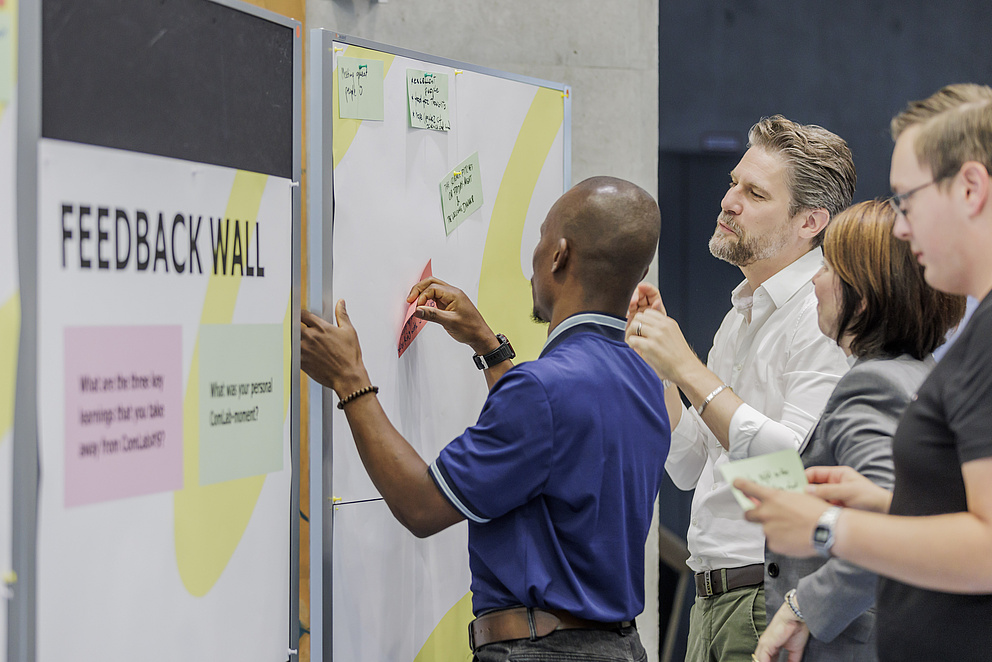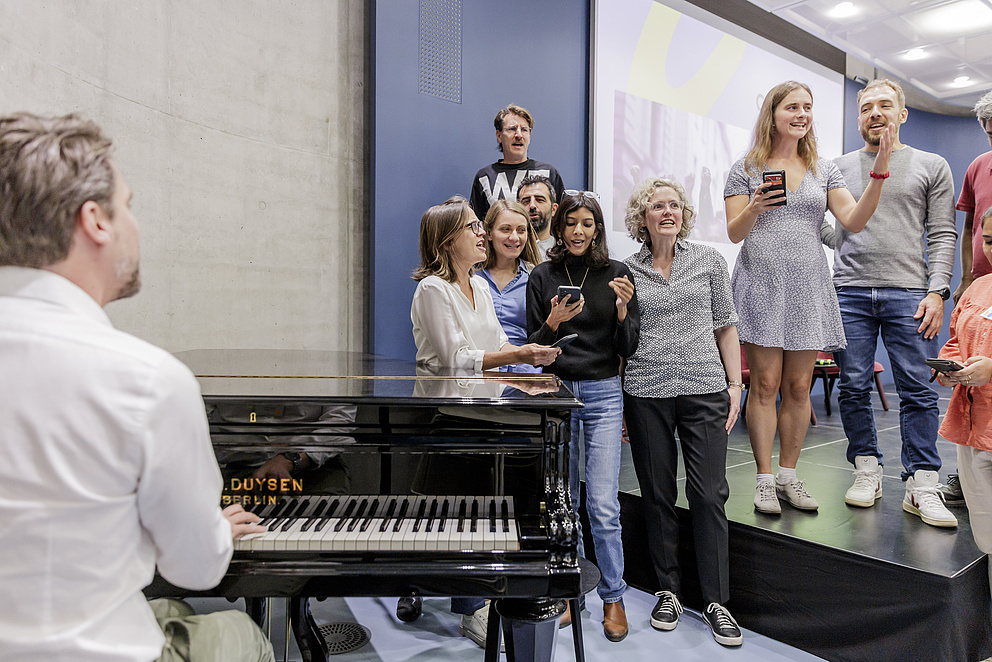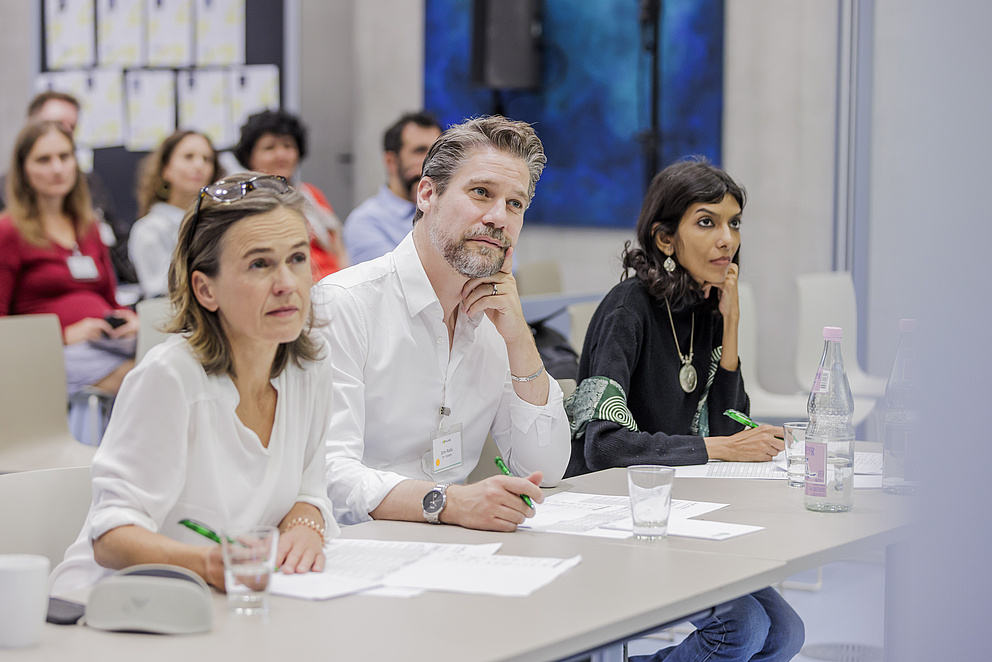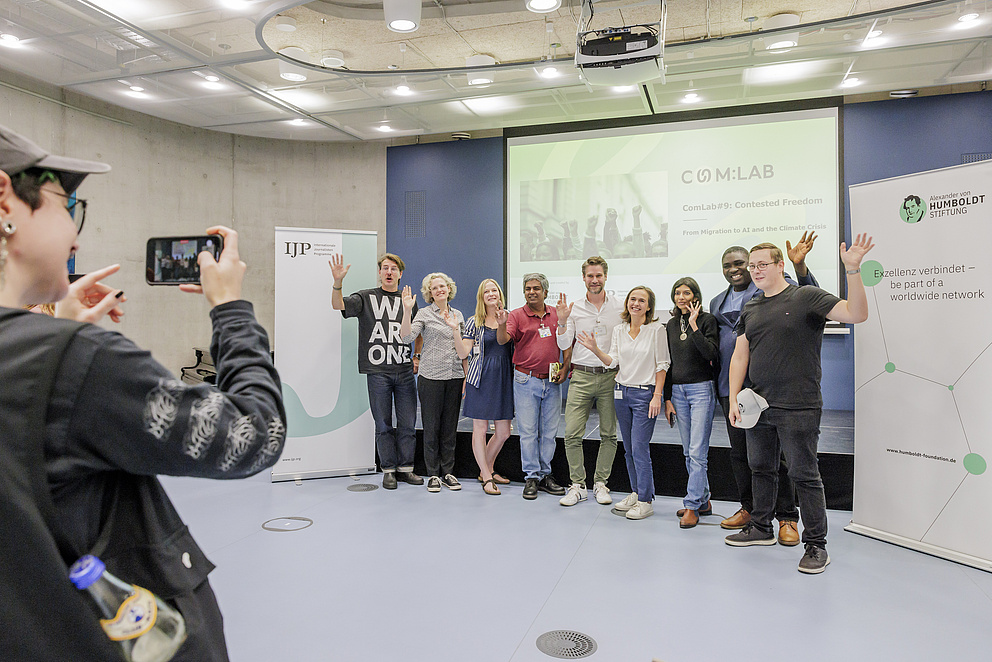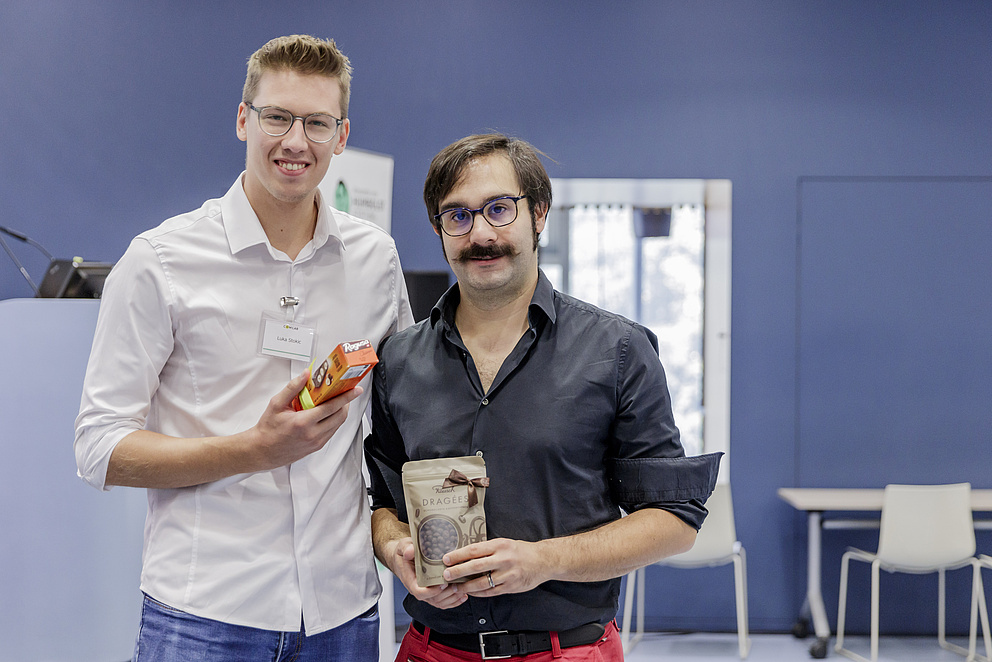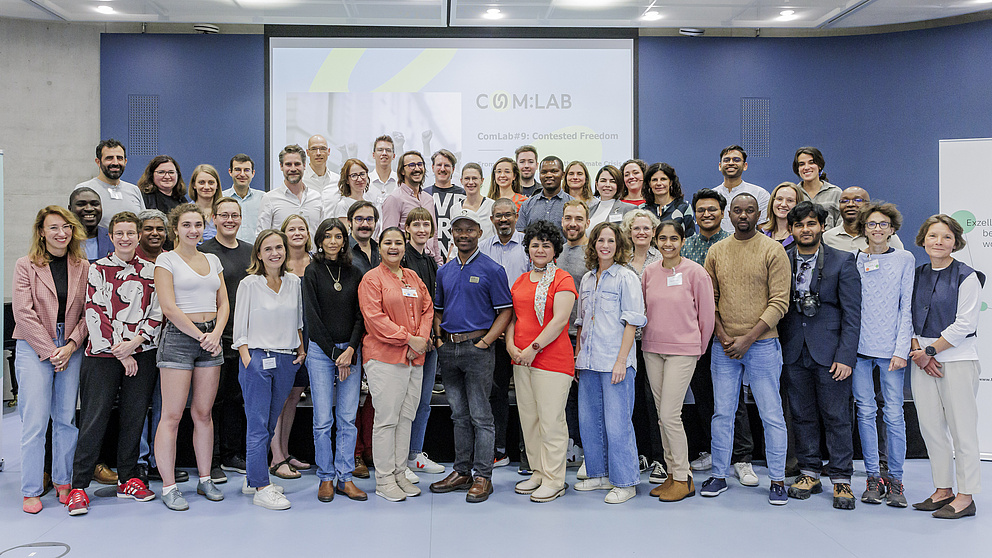
The ninth Communication Lab taking place in Berlin addressed areas of conflict related to freedom in an ever more complex world. Climate and migration issues, in particular, challenge us to consider how we want to live together in societies and what values we share. What does research tell us about the concerns and needs of communities on- and offline, about election and consumer behaviour and political opinions? And how can science and the media cooperate to communicate migration, AI and the climate crisis in a trustworthy, accessible and fact-based way?
From 19 to 22 September, 40 participants from 28 countries as well as other experts from the media, academia, the political arena and civil society shared ideas on blind spots and effective strategies in science communication. ComLab#9 offered panel discussions, workshops, networking formats and group work for a targeted exchange between research and the media. The objective was to learn from one another. At the same time, the participants formed interdisciplinary teams and supported by experienced mentors, developed project ideas for various target groups on migration, the climate crisis and AI.
The international jury of editors – Sahana Ghosh (Nature India), Jens Radü (Der Spiegel) and Heike Vowinkel (t-online) – selected the best three project ideas. The latter proved particularly convincing thanks to the originality of the respective topic, the creative and target group-orientated way they were implemented and the interweaving of scientific expertise and storytelling. The awards went to:
- the Nigerian digital humanities researcher Onwu Inya and the Slovakian journalist Tomáš Hrivňák;
- the environmental scientist Mohammed Mofizur Rahman from Bangladesh and the Danish journalist Lise Josefsen Hermann;
- the German political and economic scientist Daniel Mügge and the German political analyst and advisor Sabine Muscat.
The audience award went to the French Antarctic researcher Mathieu Casado and the Serbian climate journalist Luka Stokic.
Communication Lab: Once a year, Humboldt Foundation fellows get together with journalists from all over the world – fellows of the International Journalists’ Programmes. During a three-day workshop, they form science-media tandems to develop an innovative journalistic project, supported by experienced mentors. Learning from one another is at the heart of the activity. What do we expect of one another? How can trusting collaboration succeed? And what makes good science communication?
The Communication Lab is funded by the Federal Foreign Office and is a collaboration between the Alexander von Humboldt Foundation and the International Journalists’ Programmes.

